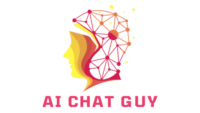The job market is constantly evolving, and the integration of AI technologies is transforming the way we work. In 2023, AI will have a significant impact on various industries and career prospects, bringing about changes that will require individuals to adapt and upskill in order to remain competitive in the job market.
So, how is AI impacting the job market in 2023? This article will explore the effects of AI advancements on the job market, the growing influence of AI, industries impacted by AI, the future of jobs with AI, and strategies for navigating the changing job market.
Key Takeaways:
- AI advancements are transforming the job market, leading to new job requirements and skill demands.
- The influence of AI is rising in various industries, affecting jobs such as healthcare, finance, and customer service.
- The future of jobs with AI is uncertain, with potential job loss, job transformation, and job creation.
- To navigate the changing job market, individuals must upskill and adapt to new job requirements.
The Growing Influence of AI in the Job Market
Artificial Intelligence (AI) is increasingly influencing the job market, creating new opportunities and changing job requirements. As AI technologies continue to advance, there is a growing demand for skills that can help organizations leverage the potential of these technologies.
Jobs that require strong analytical and programming skills are being impacted the most by AI advancements. For instance, traditional jobs like data entry and data analysis are being replaced by AI-powered automation tools and algorithms, which are faster and more accurate.
However, AI is also creating new job opportunities. There is a rising demand for data scientists, machine learning engineers, and AI system integrators who can design, develop, and maintain sophisticated AI systems. These jobs require a blend of technical and business skills and are in high demand across various industries.
The Rise of AI-Powered Jobs
In addition to creating new jobs, AI is also changing the nature of existing jobs. For example, customer service representatives are now required to have strong digital skills to handle customer inquiries via chatbots. Similarly, healthcare professionals need to be proficient in using AI-powered tools for diagnosing diseases and making treatment recommendations.
The influence of AI is not just limited to tech-based companies. Industries such as finance, transportation, and retail are also leveraging the power of AI to drive business growth and increase operational efficiency.
The Need for Continuous Learning
To stay relevant in the AI-driven job market, professionals need to constantly upskill and reskill. They need to learn new technologies, keep up with industry trends, and develop a flexible mindset that can adapt to changing job requirements.
Upskilling can help professionals acquire new knowledge and skills related to AI and other emerging technologies. Reskilling can help individuals pivot to new job roles or industries that are less likely to be impacted by AI advancements.
Continuous learning is key to navigating the changing job market in 2023 and beyond. By investing in yourself and staying ahead of the curve, you can secure a successful and fulfilling career in the AI era.
Industries Impacted by AI in 2023
AI is transforming various industries, from healthcare to finance, manufacturing, and customer service. As AI technologies continue to evolve, they are reshaping the way work is done, leading to changes in job roles and skill requirements across different sectors.
Healthcare
AI is rapidly changing the landscape of healthcare, from diagnosing diseases to providing personalized treatments. With AI-enabled devices and applications, doctors and medical workers can analyze large amounts of patient data, detect diseases and predict potential health risks at an early stage. This helps in timely interventions, leading to better health outcomes and reduced healthcare costs. However, as AI becomes more prominent in healthcare, there may be concerns about privacy and security issues related to patient data.
Finance
The finance industry is also being impacted by AI, particularly in areas such as fraud detection, financial forecasting, and customer service. AI-enabled chatbots and virtual assistants are being deployed to assist banking customers in their inquiries and transactions, while AI algorithms are helping financial institutions to identify and mitigate risks in real-time. However, AI advancements in finance may also result in job losses, particularly for those involved in manual data entry and analysis.
Manufacturing
AI is transforming the manufacturing industry by enabling more efficient and automated production processes. Robotic process automation and AI-powered robots are being used to perform repetitive and dangerous tasks, while predictive maintenance systems are being implemented to optimize equipment and reduce downtime. However, the increasing use of AI in manufacturing may also lead to job losses for manual laborers and low-skilled workers.
Customer Service
AI is changing the way customer service is delivered, providing more personalized and efficient experiences for customers. AI-powered chatbots and virtual assistants are being deployed to handle simple queries and complaints, freeing up human representatives to focus on complex issues. However, there may be concerns about the quality of AI-based customer service experiences, as they may lack the empathy and emotional intelligence of human representatives.
Overall, AI is transforming various industries and job roles, leading to changes in job requirements and skill sets. It is important to stay up-to-date with the latest AI trends and technologies to remain relevant and competitive in the changing job market.
The Future of Jobs with AI in 2023
Artificial intelligence is revolutionizing the job market, and the impact will only continue to grow in 2023. While some jobs may be replaced by AI technologies, new jobs will also be created as a result. The key to success in the AI-driven job market is to understand the changes and adapt accordingly.
The Potential for Job Loss
It is no secret that some jobs will become automated due to AI advancements. According to a report by the World Economic Forum, over 85 million jobs may be displaced by AI by 2025.
| Types of Jobs at Risk | Examples |
|---|---|
| Repetitive manual labor | Factory workers, construction laborers |
| Cognitive routine tasks | Accountants, data entry clerks |
| Telemarketing and customer service | Call center representatives |
If you are currently working in a job that is at risk of being automated, it may be time to consider upskilling or reskilling to prepare for the future job market.
The Transformation of Jobs
While some jobs may disappear, others will undergo transformation due to AI technologies. For example, a customer service representative may become a chatbot trainer or a data entry clerk may become a data analyst.
The following table provides examples of how some jobs may be transformed:
| Current Job | Transformed Job |
|---|---|
| Customer Service Representative | Chatbot Trainer |
| Data Entry Clerk | Data Analyst |
| Accountant | AI System Auditor |
New Job Creation
While AI may replace some jobs, it will also create new ones in areas such as AI development, software engineering, and data science. The following table provides examples of some of the new jobs that may be created:
| New Jobs | Examples |
|---|---|
| AI Developer | Machine Learning Engineer, Natural Language Processing Specialist |
| Data Science and Analytics | Data Analyst, Data Scientist, Business Intelligence Analyst |
| Robotics | Robotics Engineer, Robotics Technician |
The Demand for AI Skills
As the job market evolves, so do the skills that are in demand. AI skills are becoming essential in various industries, with the most significant demand in the technology and healthcare sectors. The following table provides examples of some of the AI skills that are in high demand:
| AI Skills in High Demand | Examples |
|---|---|
| Machine Learning | Algorithm Development, Neural Networks, Deep Learning |
| Natural Language Processing | Speech Recognition, Sentiment Analysis, Text Mining |
| Robotics | Robotics Process Automation, Sensor Integration, Robot Programming |
As the job market continues to evolve with AI technologies, it is crucial to stay informed and adapt accordingly. Upskilling, reskilling, and developing AI skills will be critical for success in the AI-driven job market of 2023.
The Future of Jobs with AI in 2023
As AI continues to expand its reach in the job market, it’s important to consider what impact it will have on your career. While some jobs will undoubtedly be lost, many others will be transformed or created. Here are some insights into the future of jobs with AI in 2023.
The Potential for Job Loss
It’s true that many routine and repetitive jobs will be automated with AI, leading to potential job loss. However, this doesn’t mean that all jobs will be replaced. Instead, there will likely be a shift towards jobs that require unique human skills such as creativity, critical thinking, and emotional intelligence.
Job Transformation
Many jobs will be transformed by AI, with new responsibilities and tasks being added to existing roles. For example, customer service representatives may work alongside AI-powered chatbots to provide a more efficient and personalized experience for customers. Learning new skills and adapting to changing job requirements will be essential for success in the AI-driven job market.
New Job Creation
As AI continues to develop, new job opportunities will emerge. This includes roles such as AI trainers and explainers, who will work on developing and improving AI systems. Other potential new jobs include data privacy specialists and ethical AI consultants, who will ensure that AI is being used in an ethical and responsible manner.
Overall, the future of jobs with AI in 2023 is complex and multifaceted. While there will be job loss, there will also be opportunities for transformation and new job creation. The key is to stay informed about AI advancements and be prepared to adapt to changing job requirements.
Navigating the Changing Job Market in 2023
To navigate the changing job market in 2023, it’s important to focus on developing in-demand skills such as data analysis, programming, and digital communication. Consider taking courses or earning certifications to stay up-to-date with the latest trends and technologies.
It’s also important to be flexible and open to job opportunities outside of your current field. Many industries are being transformed by AI, so consider exploring new career paths that align with your skills and interests.
Finally, stay positive and remain adaptable. The job market will continue to evolve, and it’s important to be prepared for whatever comes your way. By embracing change and continuously learning and growing, you can thrive in the AI era.



